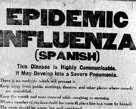If you are one of the many people who like to investigate their own family history or perhaps are thinking of investigating it, you might think that it is unlikely that you would not need a professional family history researcher.
Should you be so quick to dismiss the possibility of a professional researcher?
Professional researchers can save you money on doing it yourself. Looking at Scottish records, a basic online search of only three generations could easily cost you £100. However, professional researchers can visit centres and do the work for you - and far more work - in a short time period and certainly for less cost per certificate than trying to do it online.
Part of the fun for you, might be doing the research yourself, even if it takes much longer and is more costly. However, have you ever hit a brick wall with your research? Professional researchers such as Kin Tree have obtained nationally accredited qualifications and have a great deal of knowledge of other ways to find out information on your ancestors. Getting over that brick wall could be all you need to get on with research yourself. Why limit your family history interest because of a snag that could easily be remedied?
Professional researchers with properly accredited qualifications are used to dealing with archives and with so many records not online, they are ideally placed to visit on your behalf.
Visiting an archive may not be practical for you or sometimes it can seem daunting but it every day business for the professional researcher.
Most people find ancestors have moved around - often to other parts of the world and it can be a difficult to navigate in other countries' records systems. Also, like at home, many records will be offline. Professional researchers are used to dealing with these record systems and have links with other professional researchers around the world who can look for offline records for you.
At a good professional research company like Kin Tree, our researchers have qualifications in both family history but also in history. We have specialists in Scottish history along with more general history. This is important to put your family story into context. Once you have the basic dates, you will want to know how your family lived and perhaps what prompted them to move or do the type of work that they did. We can all guess at this but with our knowledge of history and how it is properly researched, this can quickly be added to your family story in a way that it can take months if not years to do on your own.
So remember, it's important to think of every avenue for your family history research. Don't limit your family's story because you didn't check out what help is available. At Kin Tree, it is always free for you to have a chat. Contact us for a free no obligation chat at
kintree@ymail.com
Why not enter our competition to win some free research. It's a great way to find out if a professional researcher can help you!
Click here to enter the competition












